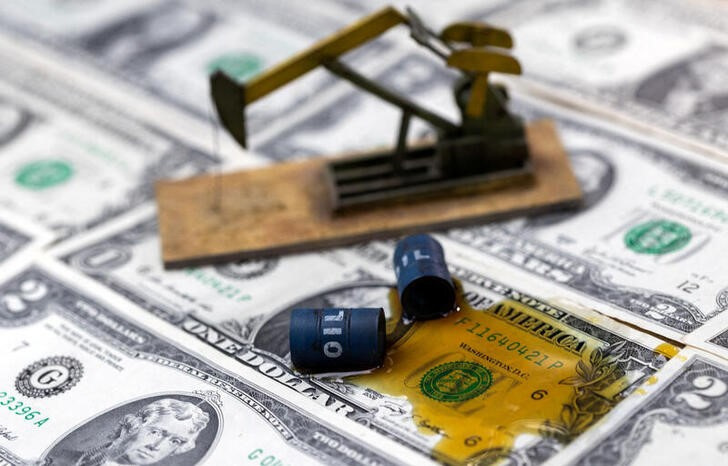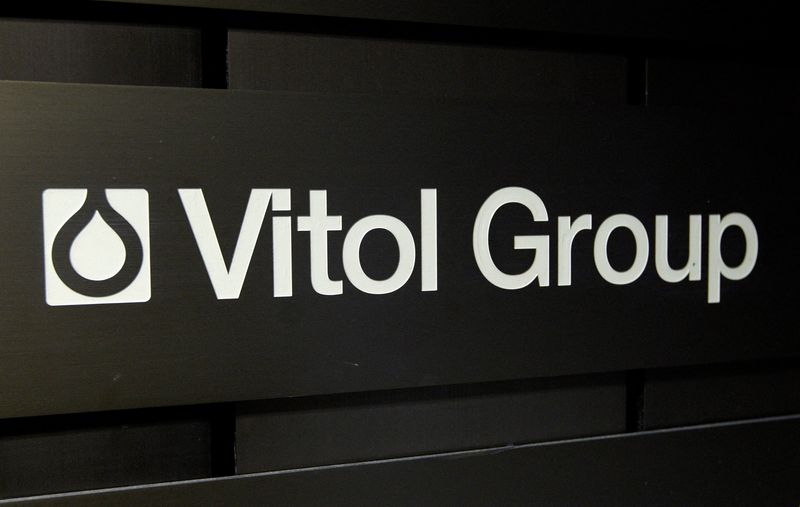By Dmitry Zhdannikov and Julia Payne
LONDON (Reuters) - As the world's top global energy trading houses prepare for their biggest annual industry get-together this week in London they face a growing problem, what to do with their cash.
Most trading houses, which are privately owned and controlled by their employees, disclose little about their cash position, equity or dividends.
But according to more than 10 trading and banking sources and Reuters calculations, Vitol, Trafigura, Mercuria and Gunvor are collectively sitting on billions of dollars, even after paying out record dividends.
"We borrow much less from banks and are waiting for good investment opportunities. But those are slim, especially in loss-making green energy," said an executive at one of the top trading houses, who declined to be named.
Trading houses, which already control large areas of global oil, gas and power markets, are finding it difficult to grow, while poor returns in recent years on wind, solar and hydrogen assets have irked some investors.
The cash conundrum is likely to be one of the topics on the table as traders gather for receptions and parties in London ballrooms and pubs for International Energy Week.
Vitol, the world's biggest trader, has increased its total equity to $26 billion even after paying $5 billion in record dividends after earning $15 billion in 2022, its non-public balance sheet, which was seen by Reuters, shows.
And its equity will probably rise close to $30 billion based on its 2023 results if Vitol sticks to transferring a significant chunk of retained earnings to equity, two banking sources familiar with the company's performance said.
Meanwhile, Mercuria and Gunvor have accumulated around $6 billion each in equity and retained earnings in recent years, sources familiar with their results told Reuters.
Equity figures for Vitol, Mercuria and Gunvor have not been previously reported. All three companies declined to comment.
Rival Trafigura disclosed in its latest report its equity grew almost 2.5 times to $16.5 billion in the last 4 years.
The equity of the big trading houses is still dwarfed by oil majors such as Shell (LON:SHEL) with $188 billion or BP (NYSE:BP) with $85 billion, according to their latest reports.
MARGIN CALLS
Until a decade ago, most traders preferred to have few assets, low equity or cash positions and pay out most of their profits in dividends to their employee shareholders.
The exception was Glencore (OTC:GLNCY), which began trading as Marc Rich in the 1970s and gradually amassed coal and metals assets. It went public in 2011, raising $11 billion.
Total equity is calculated as the difference between assets, including retained earnings, and liabilities and is key to determining how much a company is worth.
Trading houses have bought assets over the past decade, from oil refineries to wind farms and metals mines, using profits and money borrowed from banks while keeping their cash reserves low.
That changed in 2022 when gas prices soared after Russian gas supplies to Europe dropped as a result of Western sanctions that aimed to punish Moscow for its invasion of Ukraine.
Traders often hedge their positions with derivatives, usually borrowing 90% of the money to buy them while using their own cash to cover the remainder.
If prices soar, exchanges ask traders to contribute more of their own cash in so-called margin calls.
"We all faced margin calls and rushed to borrow from banks. This is when we decided it was prudent to put aside more cash," a second trading house executive said.
SELF-FINANCED
Traders such as Trafigura work with up to 150 banks and have as much as $50 billion of credit lines available.
At the peak of the margin call crisis traders used the lines in full and some banks refused to boost lending, while encouraging traders to find alternatives.
Most traders decided to retain earnings as equity.
"We beefed up our equity and as a result more of our trade became self financed," a third trading executive said.
When traders borrow less, banks earn less in interest and cannot increase their lending to other clients if they keep large credit lines open if these are not used.
"Banks didn't like going above credit limits in 2022. But they equally disliked it when traders barely used the lines in 2023," said a banker at a top U.S. bank active in the sector.

Bank borrowing would rise again once interest rates fall and traders spend more on investments, one of the three trading executives said. But that was not happening yet.
"Sometimes traders just borrow money and put it back on a deposit with the same or different bank so it pays interest," a fourth trading executive said.
